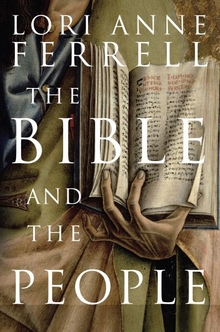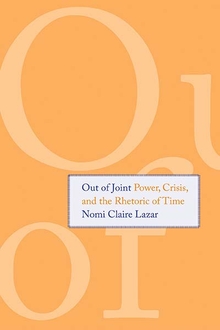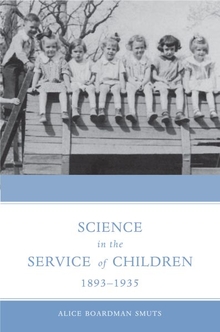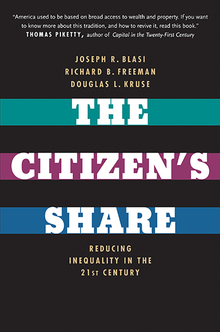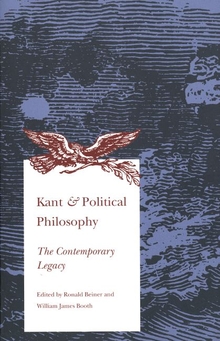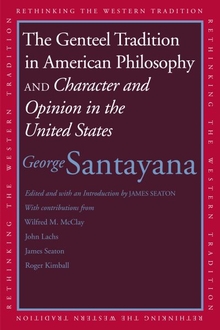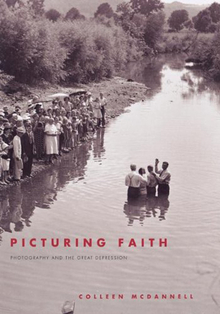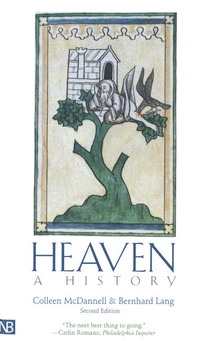Material Christianity
WARNING
You are viewing an older version of the Yalebooks website. Please visit out new website with more updated information and a better user experience: https://www.yalebooks.com
Religion and Popular Culture in America
Colleen McDannell
Out of Print
Drawing on a rich array of historical sources and on in-depth interviews with Protestants, Catholics, and Mormons, Colleen McDannell examines the relationship between religion and mass consumption. She describes examples of nineteenth-century religious practice: Victorians burying their dead in cultivated cemetery parks; Protestants producing and displaying elaborate family Bibles; Catholics writing for special water from Lourdes reputed to have miraculous powers. And she looks at today's Christians: Mormons wearing sacred underclothing as a reminder of their religious promises, Catholics debating the design of tasteful churches, and Protestants manufacturing, marketing, and using a vast array of prints, clothing, figurines, jewelry, and toys that some label "Jesus junk" but that others see as a witness to their faith. McDannell claims that previous studies of American Christianity have overemphasized the written, cognitive, and ethical dimensions of religion, presenting faith as a disembodied system of beliefs. She shifts attention from the church and the theological seminary to the workplace, home, cemetery, and Sunday school, highlighting a different Christianity—one in which average Christians experience the divine, the nature of death, the power of healing, and the meaning of community through interacting with a created world of devotional images, environments, and objects.
"One of the most important books in the study of American religion to appear in some time. Gracefully written, it offers a powerful alternative model for envisioning what counts as 'religious' in American culture."--Edward T. Linenthal, author of Preserving Memory: The Struggle to Create America's Holocaust Museum
"American religions have been studied up to now as if Christians had no bodies. In this witty, learned and comparative study, Colleen McDannell goes a long way towards putting the body and the senses at the center of the study of American religions. In a series of brilliant case studies that range over Catholic shrines, Mormon underwear, Protestant icons, McDannell helps us to understand that the textures of faith—its smells, tastes, looks, and feel—are central to the cultural work of religion, to the making of religious meanings, and to the experience of faith itself. The collection of illustrations she has assembled is revelatory and revolutionary. It will be impossible after Material Christianity to think about American religions in a disembodied way ever again. From now on—I hope—all scholars of American religion will need slide projectors (at least) when they talk about their research, because McDannell will have taught them that whatever they are studying looks, smells, tastes, and that the textures of religions matter."—Robert A. Orsi, Professor of Religious Studies, Indiana University
"A cornucopia of Christian kitsch whose cultural power McDannell unravels with sophistication and enthusiastic delight."—Jon Butler, Yale University
"Colleen McDannell's Material Christianity is as historically satisfying as it is intellectually creative. By treating seriously—and with no patronizing—the material objects collected, read, displayed, and marketed by ordinary American Christians, McDannell administers a healthy corrective to studies of religion focused only on the words and institutions of elite church leaders. Christians, who claim to follow a religion defined by the Incarnation of God as a human object, should welcome this study as much as non-believers who want to know more about the ordinary concerns of ordinary Americans. Readers of all kinds will benefit from McDannell's wide-ranging research, her sensible use of gender theory, and her splendid choice of apt illustrations. This is a landmark book."—Mark A. Noll, Professor of History, Wheaton College
"A groundbreaking, impressively researched, and kitsch-filled exploration of how Americans' sacred 'stuff' both shapes and reflects their religious beliefs."—Kirkus Reviews
"The careful intertwining of theory and practice in historically informed case studies is exemplary for readers with a specific interest in material Christianity as well as those with a more general interest in material culture and the making of meaning."—Booklist
"Rather than sneering at the trade in pious knick-knacks—what critics label "Jesus Junk"—McDannell tries sympathetically to grasp its meaning for believers and for U.S. culture as a whole. . . . [A] fascinating book."—New Statesman & Society
"A marvellously intelligent and sympathetic look at an aspect of religious culture that is usually guaranteed to inspire just as much gleeful disdain as any televangelist's scandal. . . . McDannell is able to show the surprising variety and real purpose of ornamental Bibles, scripture cookies, Jesus lampshades, even Mormons' sacred pants. . . . It is truly heartening to come across a work so intelligent as this and so committed to . . . understanding. Together with McDannell's rigourous research, and her clear, jargon-free style, these qualities make for an admirable and surprising book."—Harry Ritchie, Financial Times
"McDannell provides a brilliant commentary on how material Christianity has grown and adapted accordingly to consumer demand. . . . The objects of religion under McDannell's scrutiny are shown to be texts that really tell us about ourselves. For those interested in Americana, religion, art and especially people, this book is a must."—Rev. Michael P. Orsi, Pastoral Life
"McDannell's achievement is truly impressive. She has provided a provocative and rewarding alternative model for understanding American religion—a model that offers a more complete and balanced account of how believers understand, transfer and contest religious values."—Scott Flipse, American Catholic Studies Newsletter
"This is a good book. Clear, readable, and scholarly, it told me many things I did not already know about popular Christian practice in the United States. It is richly illustrated and uses a format that ties the illustrations to the text in an intelligent way. The primary audience seems to be scholars in religious and cultural studies, although it is clearly meant to be accessible to the intelligent nonspecialist reader as well. . . . Sociologists interested in religion or popular culture will find the book a useful exploration of important theoretical themes and an extremely useful source of historical information. . . . Well-written and exhaustively researched, the book would make an excellent text for an undergraduate or even an introductory graduate class on the sociology of religion, popular religion, religious culture, or religion and gender."—Penny Edgell Becker, American Journal of Sociology
"Material Christianity is a valuable resource for scholars, ministers, and laypeople interested in manifestations of religious conviction in the experience of everyday life. Creative and lucid, this book examines a subject that has long been overlooked by scholars of religion—the material culture of American Christianity."—William D. Romanowski, Calvin Theological Journal
"A scholarly, witty and enthralling study of material Christianity."—Gillian Mottram, Faith and Freedom
"[McDannell's] studies are windows onto a variety of religious worlds and historical contexts. . . . A significant book with carefully laid out arguments. . . . An excellent resource for scholars of religion interested in material Christianity, for sociologists and anthropologists exploring the wider field of material culture and religious practice and for specialists in women's studies concerned with the gendering of religious practices in the United States."—Kathleen S. Nash, America
"McDannell opens fascinating doors in this study, ones that will become increasingly important as scholars continue to direct attention to the ways ordinary men and women do about the business of being religious."—Charles H. Lippy, Church History
"Richly illustrated with black and white and color plates, the book reviews the religious object as fashion, the bible, cemeteries, Lourdes water, Christian Kitsch, Mormon garments, and Christian retailing. Throughout, McDannell's excellent commentary and analysis highlights the cultural significance of each example."—Christian Sociologist Newsletter
"McDannell's work merits a wider audience than professional academicians. Material Christianity persuasively argues for a more central role for material culture studies in our efforts to understand the religious experiences of average Americans, and provides a fine model for those who wish to heed the call."—Timothy Kelly, St. Vincent College Journal of Social History
"Each section is . . . skillfully and powerfully argued and laden with provocative points and rich insights. . . . By just opening up study of the material dimension of Christianity, McDannell has written a critically important, necessary book; through her imaginative research and insight, she has also written an intriguing and exceptionally fine one."—Timothy J. Meagher, Catholic Historical Review
"McDannell contributes substantially to discussions of American religious life by exposing a feature of American Christianity that has been neglected and should be studied."—Margaret R. Miles, Journal of American Academy of Religion
"McDannell's book is exciting."—Michael J. Walsh, Heythrop Journal
"McDannell displays a sharp sense of social history and historical context as well as a sophisticated theoretical control of her subject. . . . [McDannell] writes with authority and insight in an area of American religious studies in which she is clearly now the major voice."—Catherine L. Albanese, History of Religions
"I commend this book as a long overdue analysis of an aspect of human religious experience that is both revealing and insightful."—Bible Editions and Versions
"Colleen McDannell, a professor of history and religious studies at the University of Utah, goes a step farther in her revisionist study Material Christianity: Religion and Popular Culture in America, in which she seeks to reverse our assumptions about the sequence of stimulus and response. . . In McDannell’s view, "People need objects to help establish and maintain relationships with supernatural characters, family, and friends. Christians use goods and create religious landscapes to tell themselves and the world around them who they are."—Michael Kammen, The Chronicle of Higher Education
Publication Date: January 24, 1996
100 b/w + 24 color illus.


